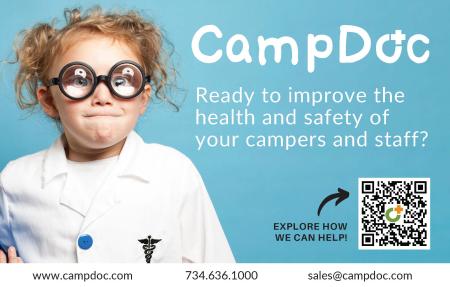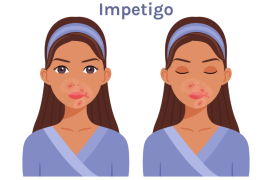Brittany Patterson, PhD, wants to remind staff from youth-serving organizations that “You can’t pour from an empty cup.” These are challenging times filled with unprecedented amounts of personal stress and trauma, and the youth-serving organizations you power and the children in your care could face hefty consequences of their own if you are experiencing burnout, demoralization, or resignation.
Prioritizing adult well-being and practicing skills and strategies to refill the cups of our nation’s youth-serving professionals is a great way to ensure children get the unconditional support and mentorship they desperately need.
First off, please tell us a little bit about yourself — your background, your passions, and your career.
Personally I’m a mom, a daughter, a sister, an aunt, a cousin, and a military brat. I think each of those identities, including my identity as a Black woman, matters and contributes to the work that I do professionally. Being a military brat, I learned early on about the importance of resilience through the frequent moves we made as a family, and I was able to identify sources of resilience that helped me to succeed through difficult challenges and times of transition.
Professionally I’m a psychologist and an assistant professor at the University of Maryland School of Medicine. My psychology work really began with some early interests in supporting youth of color in urban settings in traditionally underfunded schools and being able to really elevate the inherent abilities within every child. It’s something that I’ve always believed in based on my personal experiences as a military brat who moved all the time and had to keep starting over, challenge after challenge, but finding a way to come out on top. I always knew I would find myself in inner-city settings trying to help youth who are enduring unfair hardship, often in the form of trauma, and ensuring that they themselves could see their inherent value.
I’m just thrilled to do the work that I do. I work at the National Center for School Mental Health. My specialization is in underserved public schools where I make it my mission to help providers and other youth-serving organizations develop safe and supportive planning and structure that helps diverse youth thrive in any setting. I also get to help folks across the nation and sometimes internationally think about their school mental health programming and how they can promote mental health for youth at every level — promotion, prevention, and intervention.
You’ve said that youth-serving organizations (including camps) are enduring a number of consequences associated with unaddressed staff needs. What are some of those unaddressed needs, and what do they lead to if allowed to fester?
We see many unaddressed needs of youth-serving organizations across sectors — education, health, mental health. But we knew even prior to COVID-19 that at least one in five people would have diagnosable mental health conditions. COVID-19 only exacerbated that, and the distress people were in became much more obvious. So mental health conversations really made their way to the forefront and prompted a lot of good research in youth-serving organizations to better track what those unaddressed staff needs are. Youth-serving professionals (mentors, teachers, camp staff) have acknowledged having health needs that they aren’t sure what to do with. And organizations often don’t know how to be supportive. So, ultimately, there’s an under-acknowledgment and an under-addressing of staff needs related to their own mental health.
There are also unacknowledged and unaddressed experiences of racism, prejudice, bias, and inequity within systems. When COVID-19 happened, our nation was also faced with the social injustice issues that have existed for centuries. So while we’ve known of how social injustice impacts certain people, during COVID-19, no matter who you were — adult or child — you were inundated with images, literature, and information about the social injustices occurring day to day. But while these conversations took place on national and international platforms, organizations often didn’t have those conversations with the folks who were providing services to the youth in their communities. Being a person of color or someone in a traditionally marginalized group in an organization that hasn’t acknowledged or addressed issues of racism, discrimination, and prejudice — that’s another big unaddressed staff need within certain institutions.
Additionally, youth-serving staff don’t feel equipped to identify mental health crises among youth or knowledgeable about what to do first if a serious need is identified. They feel confused about how to support young people’s mental needs when they were previously under the impression that such action was the job of a mental health counselor, social worker, or some other agency. There is clearly a need for training.
So those problems fester, right? We experience this as folks feeling burnt out or as general fatigue. Some youth-serving staff are simply too exhausted to do their jobs at the level they want. People feel demoralized. They question why they even entered this field. The way they view the world is extremely negative, and they doubt their ability to support young people who really need their care.
Ultimately, though burnout manifests in different ways, the biggest problem for many organizations today is significant turnover. And for me — as someone for whom youth is at the center of everything I do — I actually see the greatest challenge for our youth being the lack of wellness among our adults. If the adults leave the profession, then the youth no longer have access to those positive role models. Or if they’re feeling burnt out, they can’t give the energy that’s required of the job. These are two things that I say out loud to myself and to others: When I pour from an empty cup, youth receive a drop of what they need from me. When I pour from an overflowing cup, youth receive what they deserve from me. I think that helps me to reprioritize — because that’s what it is. It’s a journey of reprioritization of our self-care and wellness so we can better serve those who need us.
What are some core skills that can help increase feelings of well-being among camp professionals and others in youth-serving fields?
The organization. That’s not a camp staff skill; it’s actually just a condition of the environment that they agreed to participate in. Your organization committing to well-being is a protective factor, something that will help you to develop some of those core skills around your camp staff, around feeling well.
Being able to set goals is one of those skills I teach young people as a psychologist, but also just something that promotes resilience in people. Goal setting is particularly important when it comes to wellness, which has multiple dimensions. If we don’t commit the time to wellness and have specific goals, we’re less likely to feel success in it. Wellness is occupational, spiritual, intellectual, social, emotional, and physical. Are you spending time in positive, reenergizing community outside of work? What are you doing to take care of your body? The point here is that you can’t just focus on work well-being. You have to focus on goals to pursue well-being that exists within and beyond professional spaces.
Another skill that I teach to young people, but which also is really important for adults in youth-serving professions, is identity — essentially using your strengths and resources. Research shows that adults working in youth-serving professions who integrate their strengths into their work are happier and less likely to experience burnout. So know what your strengths are and find ways to incorporate them. A big value of camp experiences is that youth get to interact with diverse adults and connect with them in different ways — so bring all of you to the table. And whatever your strengths are, just use them more often. Whatever you love, if it’s art or music, do it more.
Also, asking for help is an essential skill. Related to this conversation, on the other end of the well-being spectrum is mental illness. We all are somewhere on that spectrum, but when we start to move toward what feels like illness, we have to know when to get help. Once we realize professional help is needed, we have to learn to speak up. That can be starting with someone you love or trust and just saying, “Hey, here’s what’s happening with me. I don’t know what to do.” While they may not have a specific answer, once you open up that dialogue, there’s an opportunity to learn about other resources accessible to you. Asking for help saves lives. It’s a skill everyone needs, and if I can go back to the organization for a minute, it’s something that organizations need to promote. Once we encourage that, more people gain access to resources that on their own they just didn’t know about.
Can you talk a little bit about your book The Fight and what inspired you to write it?
I call this my “work of heart.” For a five-year span I was based in an urban school in Baltimore City, and I was pretty embedded in the system. The Fight in a nutshell mirrors my work with students I called “my fighters” — those who found themselves connected to me, a mental health service provider, because of behavioral issues. They were physically fighting with their fists. They were fighting with their language. Or they were fighting by running away from the academic environment, often avoiding school altogether, or appearing totally withdrawn in the classroom.
It was my job and privilege to create safe spaces for diverse youth to feel welcome, affirmed, and cared for. Doing so enabled my fighters to see exactly what I’ve always believed about all children — just how beautiful, talented, capable, and brilliant they are. But that can only come through once adults have committed to making sure youth feel safe and seen — that in your space they’re going to be unconditionally supported no matter how they’re presenting that day. That for me was really the inspiration, because my fighter babies who were doing all this "acting out" were doing so as a result of trauma. They’d been exposed to significant, chronic trauma — community violence, racism and discrimination, lack of access to stable housing, the list goes on.
What was happening with them was expected given what we know about the brain. When we’re in a dangerous situation, all humans have a fight, flight, or freeze response. And that shows up in our fighters exactly as I’ve described. They shouldn’t be penalized for that. They should be loved more for that. So working with my fighter babies and seeing how they excel when adults are equipped to support them is what inspired the book.
When kids are exposed to significant trauma, all they can think about is the here and now. Am I in danger here and now? A way to get them out of that space is to be a supportive adult. Unconditionally. And know they’re going to make errors because we all do. You hold them accountable, but you also acknowledge, “I’m right here. You made a bad choice, but I’m not giving up on you. I don’t see you any differently. I still know you’re capable, and I’m going to create more opportunities for you to practice.”
FIGHT actually stands for:
- Feelings
- Identity — strengths, resources
- Goals — setting them and being able to pursue them
- Healthy coping — which is important, because I’ve learned from working with folks exposed to hard stuff that people often learn how to cope in unhealthy ways
- Thoughts that promote affirmations — seeing oneself as inherently valuable; growth mindset is just seeing that you're capable; with practice you'll experience that capability and even exceed your expectations
What does it mean to make a “powerful” choice vs. a “powerless” one?
The key takeaway for me when I think of powerless vs. powerful decisions is that powerless decisions often are made and driven by emotion. Powerful choices are made and driven by thought. Adults and youth who are more likely to make powerful choices have two things in common: an unconditionally supportive adult or community and opportunities to practice other skills. That’s why I love out-of-school time opportunities, because they provide enrichment experiences that traditional academic settings may not provide as much of. Schools traditionally build skills around science, math, and language. But when you ask high school teachers what they want 12th-grade students to leave with, they talk about things like social-emotional learning (SEL) skills — competencies that are not consistently prioritized across schools. Camp settings tend to prioritize SEL and other essential skills and, as a result, provide experiences that build youths’ capacities for making “powerful” choices.
You wrote, “Winning is the only option when you see yourself as unbreakable.” What did you mean by that?
A lot of people like this quote. It is always a wonderful surprise for me.
The experience of imposter fatigue is commonplace. Society and media do a really good job of teaching us that we’re flawed — that we can’t live up to some standard that’s been artificially created. And, as a result, we’ve developed habits of thinking poorly of ourselves, especially in challenging moments.
If we think of ourselves as breakable, we will undoubtedly break. We’ll confirm that bias that we have against ourselves. So we, youth and adults, must learn the skill of thinking of ourselves better, affirming who we are, and believing in our inherent value.
There are too many kids of color, for example, who are told, “You should pursue a trade instead of higher education.” Too many women told, “You don’t belong at this table.” Too many individuals with disabilities told, “You can’t function in this role.” These types of biased, prejudiced opinions are often and unfairly imposed upon children and adults. So we have to develop and teach the skill of building positive thought processes and positive beliefs about self.
We are all truly unbreakable. Make it a daily practice, even if you don’t believe it, to stand in front of the mirror and say, “I’m unbreakable.” And keep saying it until you believe it. Every skill and everything you want to accomplish requires practice — and you will always win if you commit to that practice.
This interview was conducted by Marcia Ellett, editor in chief of Camping Magazine.



